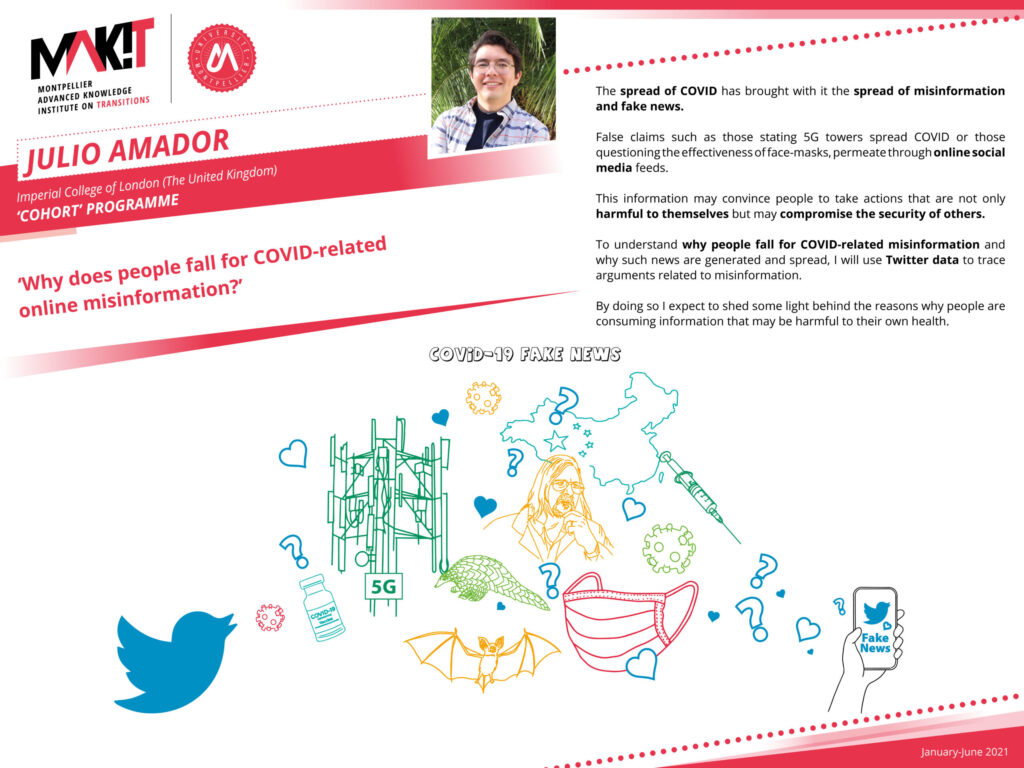Julio Amador
Julio Amador est titulaire d’un doctorat en économie de l’université d’Essex, au Royaume-Uni. Son domaine d’expertise est la théorie des jeux et le « machine learning » (ML).
Il a occupé différents postes dans la recherche, tant au Royaume-Uni qu’à l’étranger, et est aujourd’hui chercheur à l’Imperial College, affilié à son Institut des sciences des données et à son Ecole d’économie.
Ses recherches portent sur la participation politique en ligne, la catégorisation de l’opinion publique et l’identification automatique de fake news par l’utilisation des Big Data et du Machine Learning. Le Dr Amador se consacre actuellement à l’étude de la désinformation.
Alors que le lieu du discours public s’est déplacé des médias de masse vers les plateformes en ligne, les décideurs politiques sont confrontés au double défi de la réaction de se voir contredits par des experts et de satisfaire aux incitations économiques pour fournir des histoires que la société veut entendre, même si elles sont fausses. Le problème se pose, lorsque les publics influencés par des sujets contentieux ne disposent pas du contexte nécessaire pour évaluer le vrai du faux, comme il est possible de le voir actuellement au sujet de la Covid-19.
En effet, la propagation de la Covid-19 a entraîné avec elle de la désinformation et des fake news. Les fausses allégations, comme celles qui affirment que les tours 5G répandent la Covid-19 ou celles qui mettent en doute l’efficacité des masques, se répandent par le biais des médias sociaux en ligne. Ces informations peuvent convaincre les gens de prendre des mesures qui, non seulement leur sont préjudiciables, mais qui peuvent aussi compromettre la sécurité d’autrui.
Pour comprendre pourquoi les gens tombent dans ce piège et pourquoi de telles informations sont générées et diffusées, j’utilise les données disponibles sur Twitter pour retracer les arguments liés à la désinformation. Ainsi, je souhaite mettre en lumière les raisons pour lesquelles les gens consomment des informations qui peuvent être nocives pour leur propre santé.
